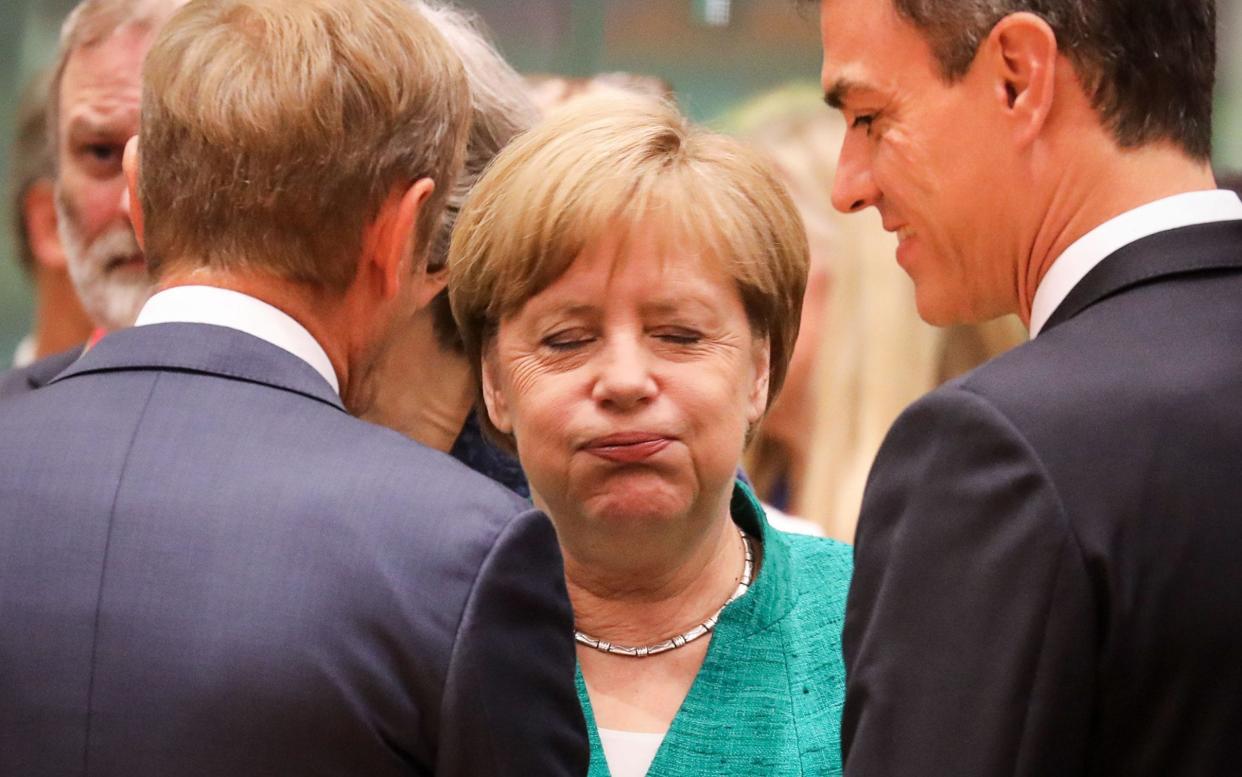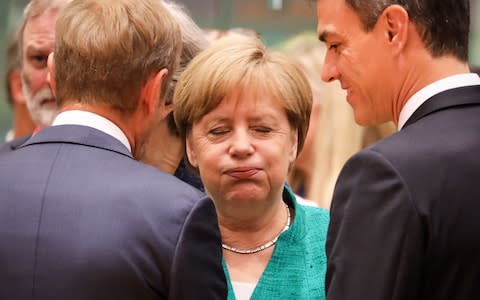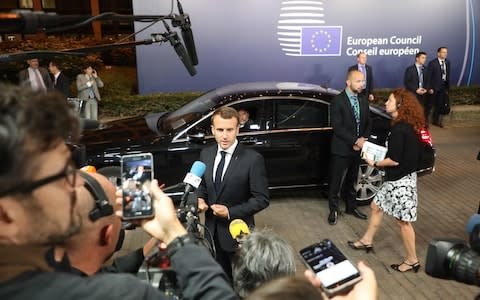EU reaches deal on migration after 'toxic' summit - but fundamental questions left unanswered

EU leaders agreed a deal to tackle their ongoing migration crisis after six hours of negotiations that exposed the bloc’s deep east-west divisions.
In an apparent victory for Italy which has been demanding greater support in handling migrants that land on its shores, the EU leaders gathered at their quarterly summit in Brussels agreed that some EU states would now set up “control centres” in Europe to process migrants.
But for hardline states like Hungary, Poland and the Czech Republic, which want to see more efforts to turn migrants away before the reach Europe’s shores, there was also an agreement to explore the concept of “regional disembarkation platforms” to process migrants in countries like Libya.
The compromises emerged after an all-night negotiation which diplomatic sources described as “deeply tense” and at times “toxic” as competing visions for how to handle Middle Eastern and African migration flows to the continent clashed head-to-head.
As the agreement was reached shortly after 4:30am, exhausted leaders each claimed victory for their vision, in a sign that showed many of the fundamental questions remain unanswered.
EU28 leaders have agreed on #euco conclusions incl. migration.
— Donald Tusk (@eucopresident) June 29, 2018
Giuseppe Conte, the Italian prime minister who had demanded that all refugees who landed in Italy should be considered to have landed “in Europe”, claimed the plan for EU reception centres as breakthrough. "Today Italy is no longer alone. We are satisfied," he said.
Mr Conte, whose government has catalysed the EU migration debate in recent weeks by refusing to allow NGO rescue ships to dock in its ports, had threatened to veto the EU Summit communique, forcing the negotiations late into the night.
No details of how the control centres would operate, or where they would be placed were available, and negotiations exposed the yawning east-west divide on migration as Hungary and other hardline states blocked the proposal unless they were given an opt-out.

As a result the EU reception centres would be set up “only on a voluntary basis”, including on the questions of “relocation and resettlement”, reflecting eastern Europe’s continued refusal to accept any migrant quotas or resettlement plans.
Pictures showed Emmanuel Macron, the French president, in his shirt sleeves, sitting alongside Mr Conte drafting the text. "European cooperation enabled this," he said afterwards, despite the clear refusal of Hungary and others to cooperate on the EU centres plan.
Pedro Sanchez, the Spanish prime minister, conceded that it was “not the best of agreements” but argued that the text showed that the EU was still capable of taking a “European perspective to face the European challenge”.
Angela Merkel delivered a more sober assessment as she emerged bleary-eyed from the talks at 5am.
She welcomed the fact that leaders had managed to agree a common text but acknowledging that the bloc still had "a lot of work to do to bridge the different views".
Mrs Merkel is under intense pressure at home from her conservative Bavarian CSU coalition partners who have demanded that she negotiate a deal that will allow them to send back migrants who stray north to Germany from their first port of entry - often Italy.

The German chancellor won the agreement that “all necessary internal legislative and administrative measures” will be taken to stop migrants registered in Italy and other EU countries from moving to Germany.
The agreement means Mrs Merkel will not leave Brussels empty-handed but she will now have to return to Berlin convince her hardline interior minister Horst Seehofer, who chairman of the Bavarian CSU, that the deal is sufficient. Key are scheduled for Sunday night.
For hardline states like Hungary and the Czech Republic, the communique emphasised on deterrence and the need to take “all necessary steps” to stop migrants landing in frontline states like Italy and Greece.
Merkel's migration tensions | Read more
There was also an agreement to “swiftly explore” the idea of UNHCR-backed regional “embarkation platforms” in places like Libya and other North African states.
Again, no details were provided and there many questions over the legal and practical viability of the plan.
The conclusions noted that the platforms should be set up “without creating a pull factor” that would encourage more migrants to come - a key concession to Hungary and others who want the platforms to be used to turn away migrants, not attract them.

